Wenhe Liu
Efficient LLM Jailbreak via Adaptive Dense-to-sparse Constrained Optimization
May 15, 2024
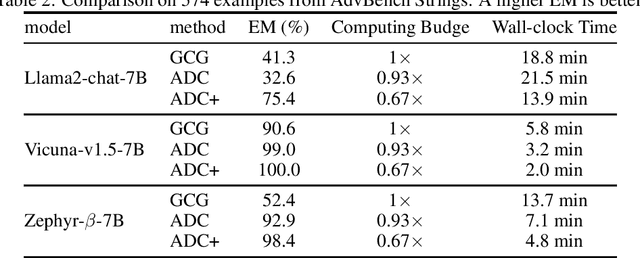


Abstract:Recent research indicates that large language models (LLMs) are susceptible to jailbreaking attacks that can generate harmful content. This paper introduces a novel token-level attack method, Adaptive Dense-to-Sparse Constrained Optimization (ADC), which effectively jailbreaks several open-source LLMs. Our approach relaxes the discrete jailbreak optimization into a continuous optimization and progressively increases the sparsity of the optimizing vectors. Consequently, our method effectively bridges the gap between discrete and continuous space optimization. Experimental results demonstrate that our method is more effective and efficient than existing token-level methods. On Harmbench, our method achieves state of the art attack success rate on seven out of eight LLMs. Code will be made available. Trigger Warning: This paper contains model behavior that can be offensive in nature.
Argus++: Robust Real-time Activity Detection for Unconstrained Video Streams with Overlapping Cube Proposals
Jan 14, 2022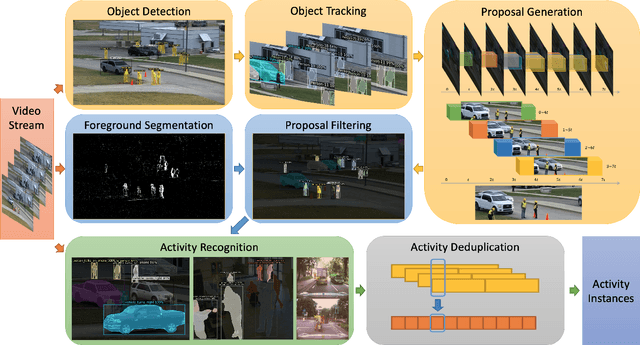

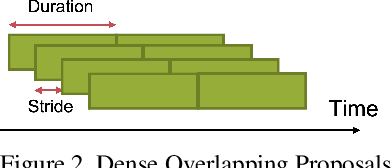
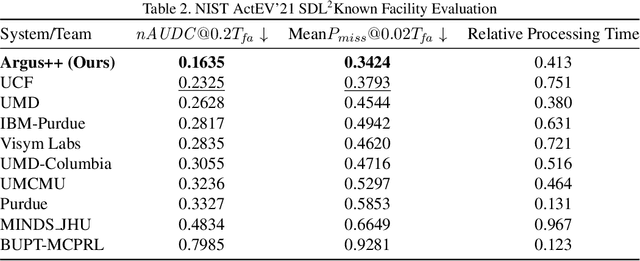
Abstract:Activity detection is one of the attractive computer vision tasks to exploit the video streams captured by widely installed cameras. Although achieving impressive performance, conventional activity detection algorithms are usually designed under certain constraints, such as using trimmed and/or object-centered video clips as inputs. Therefore, they failed to deal with the multi-scale multi-instance cases in real-world unconstrained video streams, which are untrimmed and have large field-of-views. Real-time requirements for streaming analysis also mark brute force expansion of them unfeasible. To overcome these issues, we propose Argus++, a robust real-time activity detection system for analyzing unconstrained video streams. The design of Argus++ introduces overlapping spatio-temporal cubes as an intermediate concept of activity proposals to ensure coverage and completeness of activity detection through over-sampling. The overall system is optimized for real-time processing on standalone consumer-level hardware. Extensive experiments on different surveillance and driving scenarios demonstrated its superior performance in a series of activity detection benchmarks, including CVPR ActivityNet ActEV 2021, NIST ActEV SDL UF/KF, TRECVID ActEV 2020/2021, and ICCV ROAD 2021.
Training-free Monocular 3D Event Detection System for Traffic Surveillance
Feb 01, 2020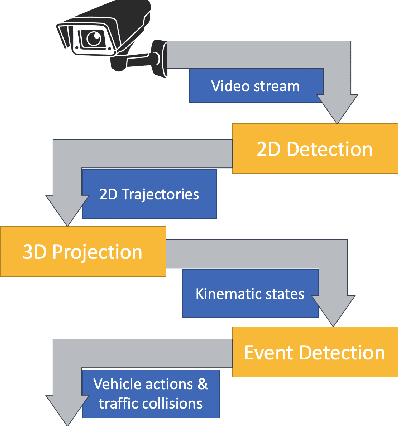
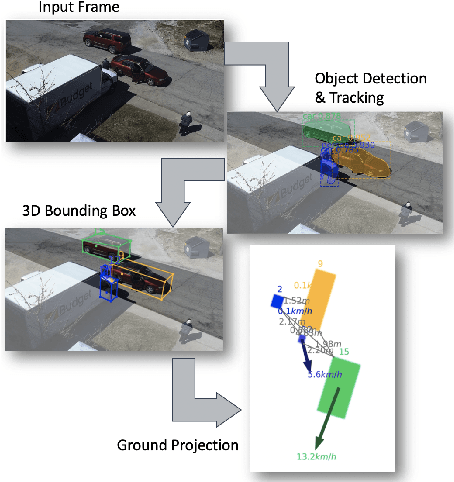
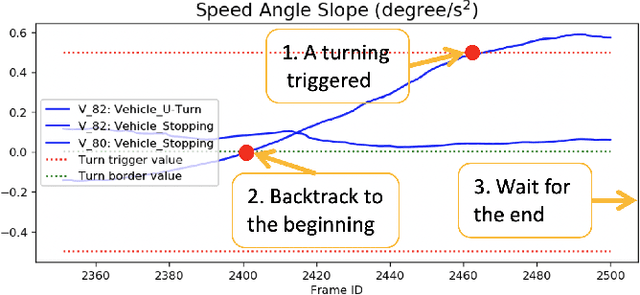
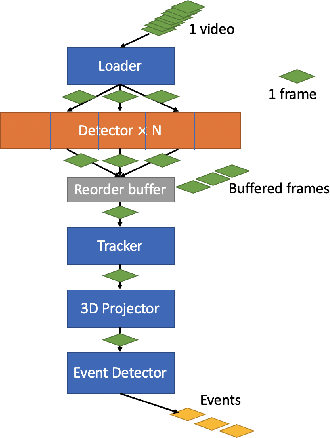
Abstract:We focus on the problem of detecting traffic events in a surveillance scenario, including the detection of both vehicle actions and traffic collisions. Existing event detection systems are mostly learning-based and have achieved convincing performance when a large amount of training data is available. However, in real-world scenarios, collecting sufficient labeled training data is expensive and sometimes impossible (e.g. for traffic collision detection). Moreover, the conventional 2D representation of surveillance views is easily affected by occlusions and different camera views in nature. To deal with the aforementioned problems, in this paper, we propose a training-free monocular 3D event detection system for traffic surveillance. Our system firstly projects the vehicles into the 3D Euclidean space and estimates their kinematic states. Then we develop multiple simple yet effective ways to identify the events based on the kinematic patterns, which need no further training. Consequently, our system is robust to the occlusions and the viewpoint changes. Exclusive experiments report the superior result of our method on large-scale real-world surveillance datasets, which validates the effectiveness of our proposed system.
 Add to Chrome
Add to Chrome Add to Firefox
Add to Firefox Add to Edge
Add to Edge